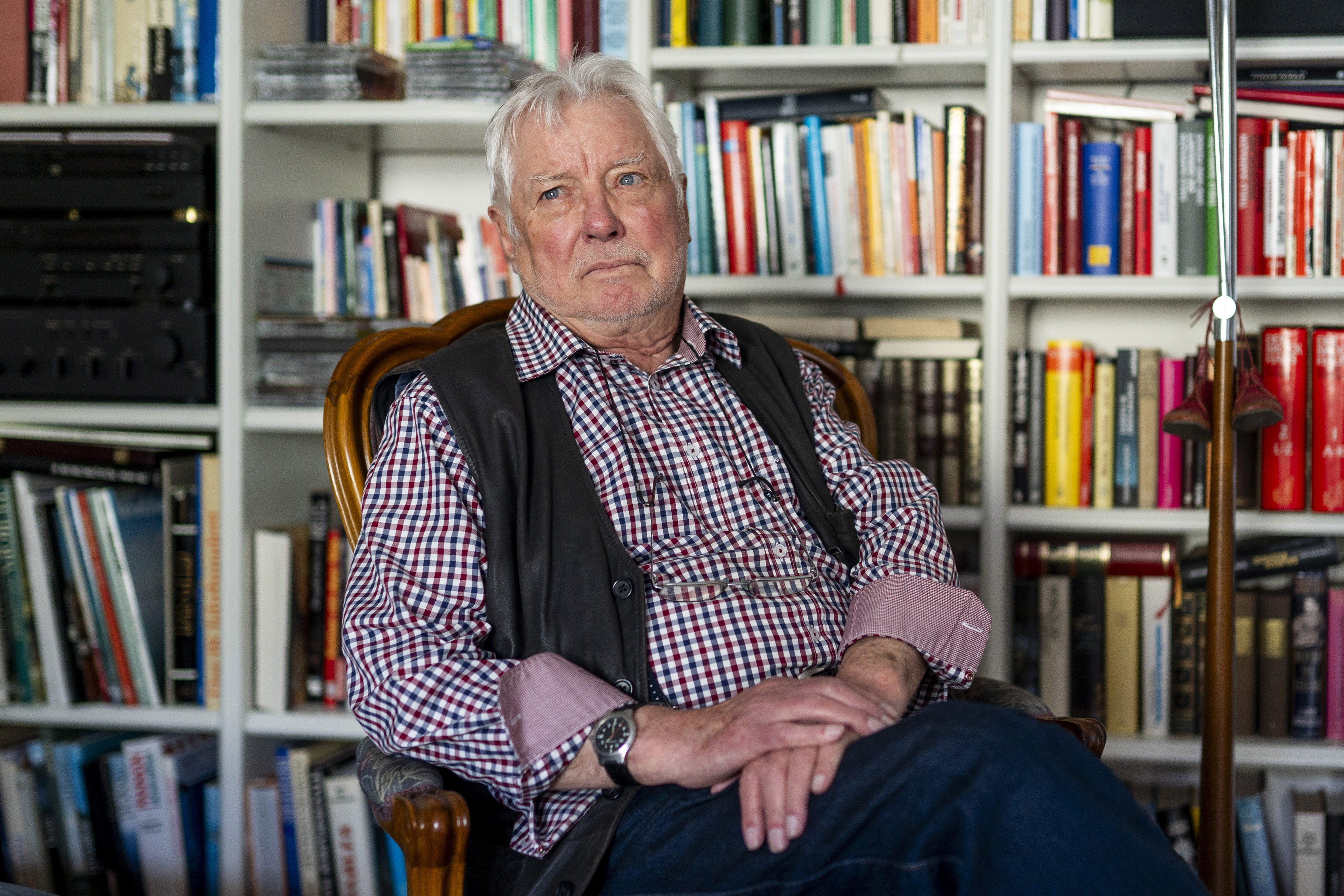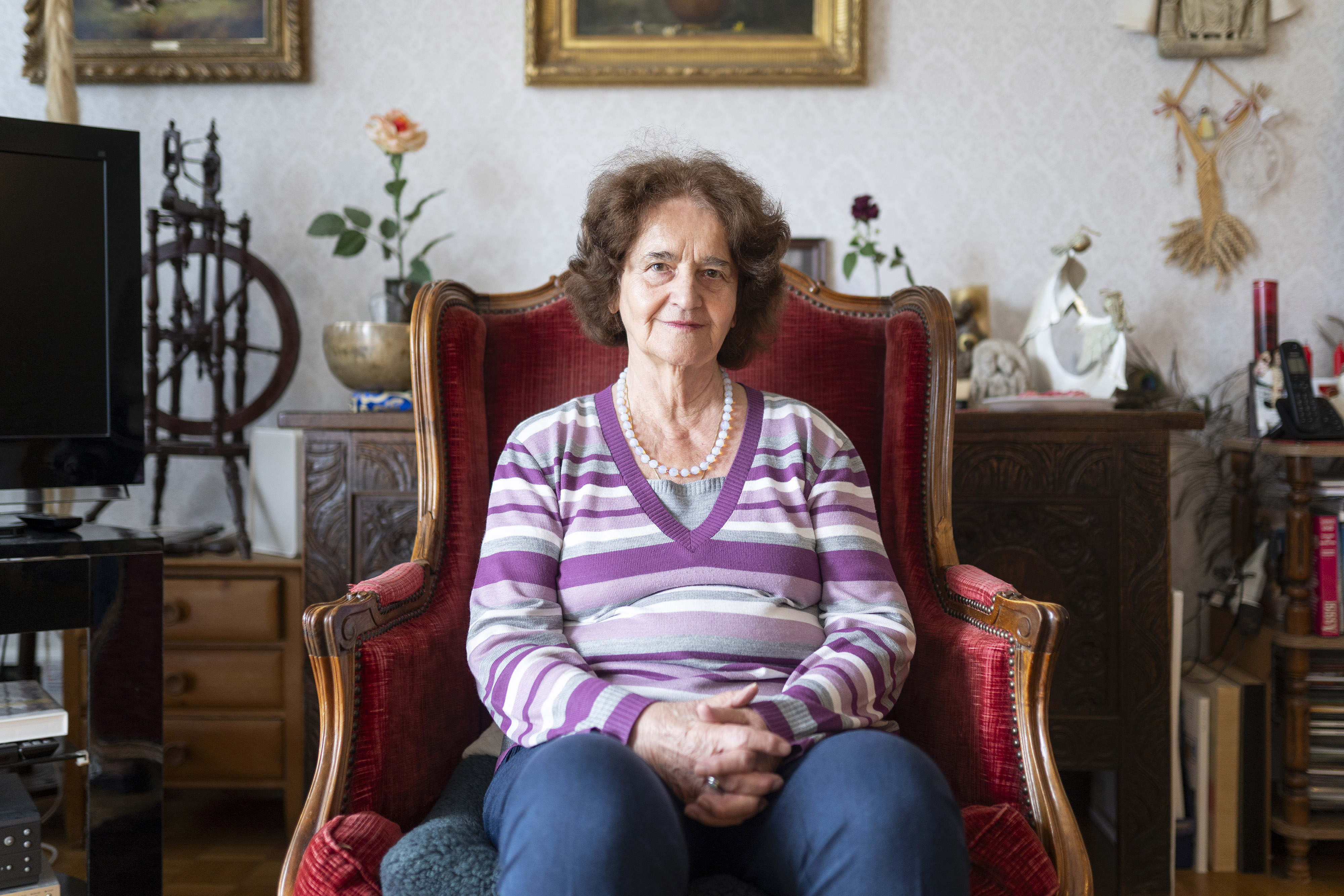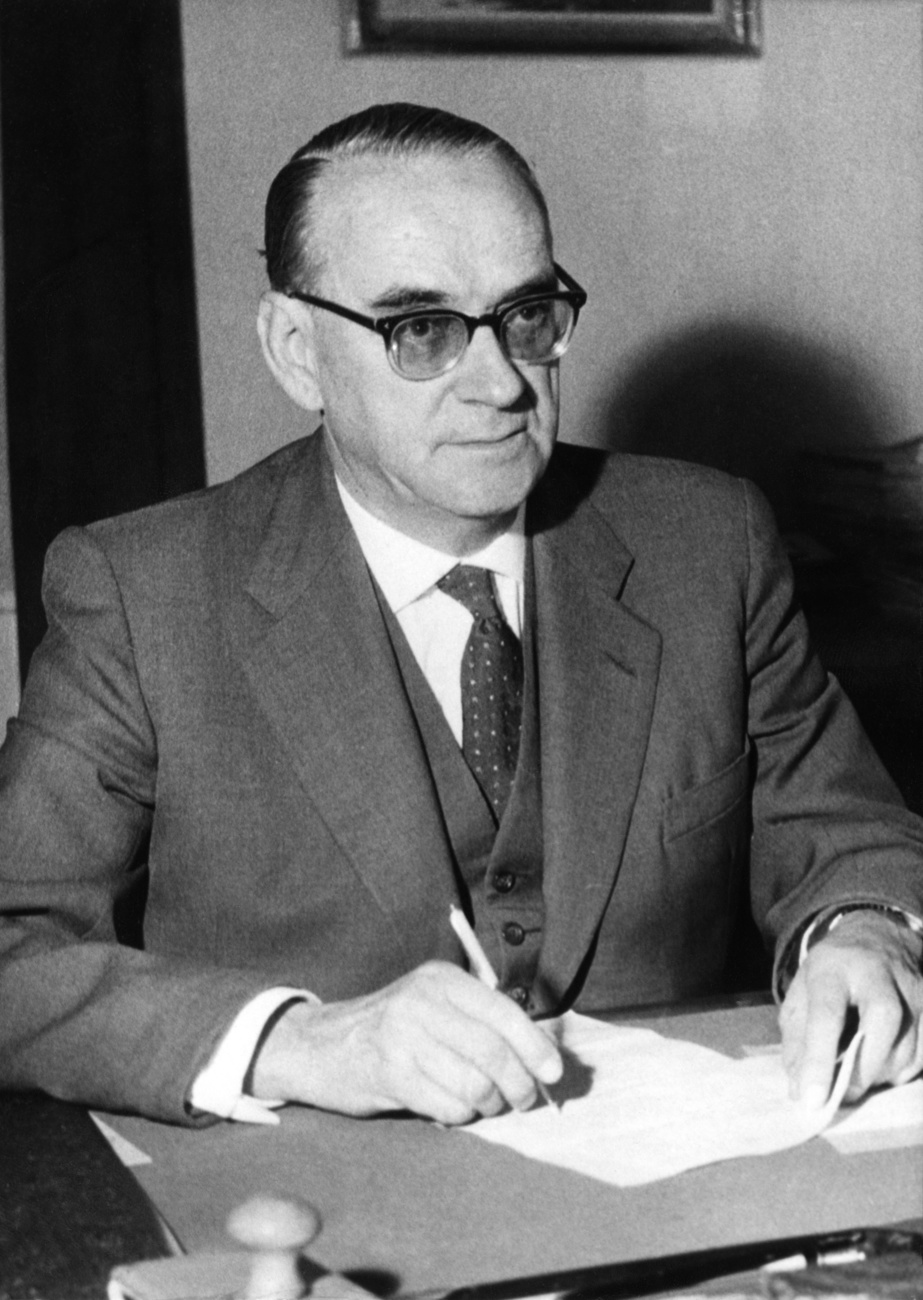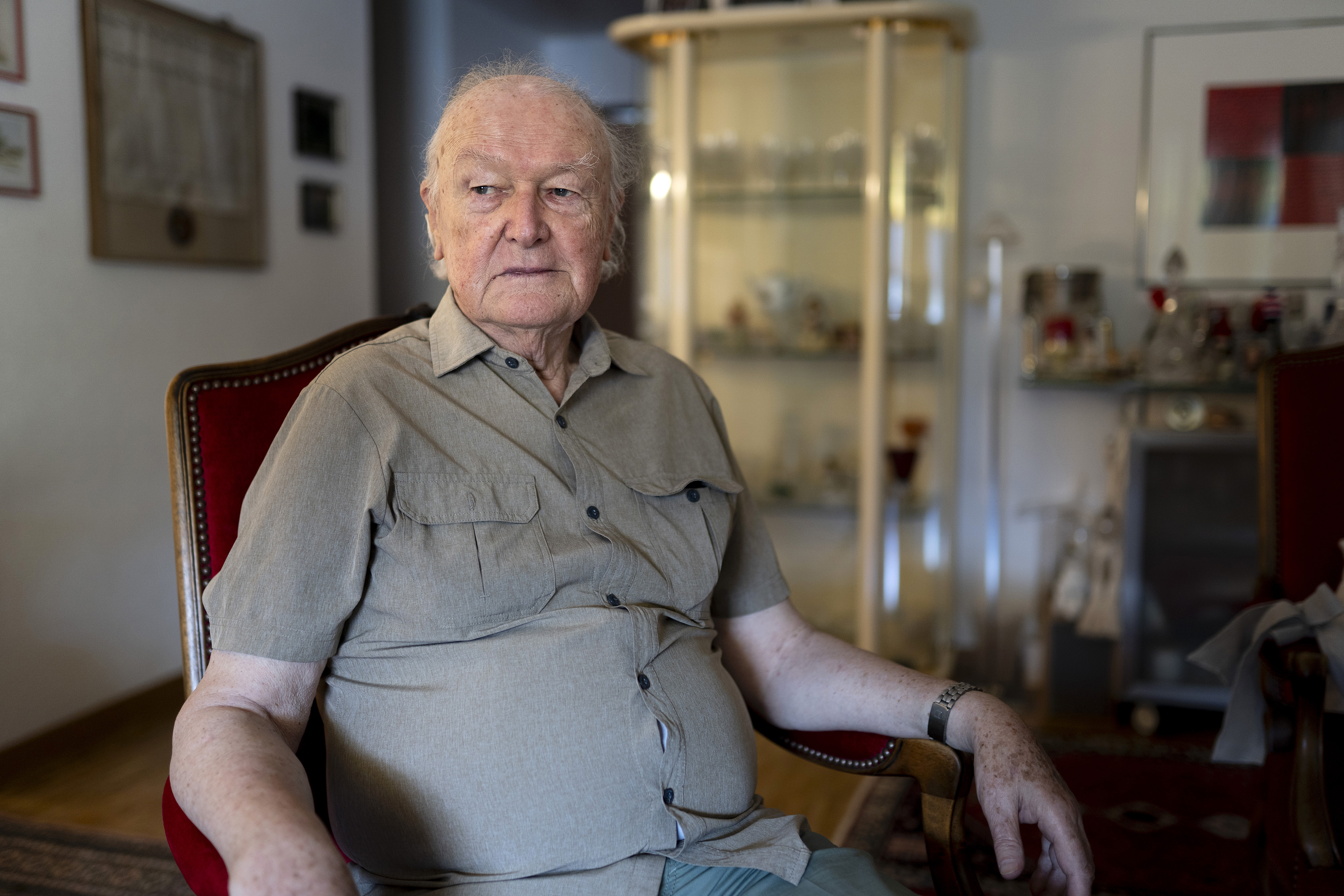Hungarians in Switzerland look at momentous past and Orbán’s present

Switzerland once took in 10,000 Hungarians fleeing Soviet persecution. Four of them look back – and at the country’s democratic development over the past 30 years.
Whenever 87-year-old Vince Gösi from canton Bern travels to Hungary, he visits the square in front of the parliament building in Budapest. This is where he stood on the afternoon of October 23, 1956, demonstrating with other students against the Soviet occupation. Tens of thousands of people joined in.
It was the start of the 13-day Hungarian Uprising. The protesters had 16 demands, including free elections, the withdrawal of Soviet troops from Hungary and a government under communist reformer Imre Nagy.
“Imre Nagy stepped out onto the balcony,” remembers Gösi, who was an economics student at the time. “He addressed us as comrades – but we shouted that we were no longer comrades and we booed him.”
The young people marched to the headquarters of Hungarian radio to broadcast their 16 demands. Some entered the building; Gösi stayed outside and heard shots. A police bullet hit a student standing next to him. “We carried him behind some bushes; but he was dead.”
In the following days, the insurgents also armed themselves. Just a few weeks earlier, the uprising in Poland had been bloodily suppressed. Now the world’s attention was locked on Hungary – and witnessed an invasion by the Soviet army.
Up to 3,000 people lost their lives in the fighting, which lasted just under two weeks. Some 33,000 insurgents ended up in prisons or internment camps. Like 200,000 other Hungarians, Gösi fled the country.
Escape via Austria
“When the Soviet troops began their second attack, I wanted to go back to Budapest,” says Gösi, who had meanwhile travelled to his parents’ village near the Austrian border. “But my parents told me to flee. If I had been arrested, I would have been imprisoned for life for taking part in the uprising.”
When the first Soviet tanks reached his village, he struck out on his own for the border. “My mother cut me a slice of bread and some bacon. Five hours later, I was in Austria.”

More
Switzerland as a mediator – the successes and failures
There he was housed in a barracks. Since Austria could not keep all those who had fled, he had to choose another country. One family persuaded him to go to Venezuela. “But then I met the priest from my village. He said we should stay close by, because the United States and the United Nations would soon intervene.”
That same evening a train left for Switzerland – with Gösi on board.
Warm Swiss welcome
Rosa Golarits came to Switzerland in a similar way. She was also one of the 10,000 Hungarian refugees whom the Swiss government allowed to enter the country unconditionally in 1956.
Golarits was 13 at the time, barely more than a child. “When we arrived at the Swiss border town of Buchs, we were showered and disinfected,” she recalls. She and her family spent the first few weeks in a guesthouse near Wattwil in Toggenburg.

They were soon visited by an official who asked the Hungarian refugees about their professions. “My father was a master weaver,” Golarits says. “The next day he was offered a job in a weaving mill – and a furnished flat to go with it.”
Until then, Golarits had only associated Switzerland with watches, but now she was struck by the anti-communist spirit of the times. “Many Swiss helped us because we were victims of the strong Soviet Union. A small nation had had the courage to rise up. People admired the Hungarian youth.”
There were large collection drives, anti-Soviet protests and the unbureaucratic allocation of housing and jobs for the arriving Hungarian refugees. This openness brought new skilled workers into Switzerland, and also helped improve the country’s international reputation. After the Second World War, the image of its humanitarian tradition was badly tarnished.

More
Congressional Gold Medal for Swiss diplomat who saved thousands of Jews
In late 1956 Golarits and her family finally moved into a house in Schaffhausen, together with four young people who had fled Hungary without their parents. “It was important for my mother to be with other Hungarians, as she was terribly homesick.”
Golarits caught meningitis and missed the start of school. To cheer her up, her parents brought her a small Swiss watch in hospital. “I said I really liked it – but that I’d rather go back home.” She finally began school the following April. After completing high school, she went on to become a primary school teacher in Zurich.
Political sympathies for Viktor Orbán
Former protester Gösi says he has little time for politics nowadays. Golarits meanwhile, now 81, sympathises with Hungary’s prime minister, Viktor Orbán, “despite the great hostility towards him in the West”, she says. Since he came to office, she has liked his family policy and his promotion of Christianity. She also supports his migration policy and clear stance against the EU.
Yet Hungary’s democratic institutions are considered to be severely weakened – because of the line taken by Orbán, who has been prime minister for 14 years. In 2022 the European Parliament condemned the developments in Hungary and denied the country its status as a democracy, calling it instead an “electoral autocracy”.
Political scientists such as Ellen Bos also see an increasingly autocratic trend in the restructuring of state institutions, such as the judiciary, and cuts to freedom of speech and the press since 2010. Orbán himself proclaimed “illiberal democracy” in 2014 – a Christian-based counter-concept that consciously opposes Western liberalism.
Fewer trips to illiberal Hungary
Ödön Szabo, 79, still reads two Hungarian newspapers a day. He is worried by the government’s anti-liberal policies, the resurgence of anti-Semitism and the rewriting of history. This is one reason why his trips to Hungary have become less frequent in recent years.
Szabo fled to Switzerland with his family of five in 1956, when he was just 11. He now lives near Basel. “We were afraid something might happen to our relatives, so we didn’t write any letters.”

It was only some years later, when the repression in Hungary had eased, that his grandmother was able to visit them in Switzerland. Then, in the 1970s, other relatives travelled to Switzerland – with the guarantee that the costs would be covered.
The loosening of restrictions in Hungary was one of the political developments of the so-called goulash communism of the 1960s and 1970s. The regime granted greater freedom of travel and boosted consumer culture, while demanding that its citizens stay out of political affairs. The memory of the 1956 uprising was still considered taboo.
No sympathy for ‘revolutionary student leaders’
“In my first years in Switzerland I was still very much under the impression of the uprising,” Szabo explains. As a law student in Basel, he lived through the 1968 movement. He booed the speeches of two revolutionary student leaders. “I saw them as representatives of the communism we had fled from.”

More
How the Swiss viewed Communism in the Cold War years
For some years, Szabo was president of the Basel Hungarian Association, organising events and connecting Hungarians in Switzerland.
When he wanted to return to Hungary for the first time in the 1970s, he was initially denied a visa. “I learnt from the daughter of the Hungarian ambassador in Switzerland that I was on a list and had therefore been rejected.”
He was later able to visit Hungary after all. “In Budapest, my uncle came to see us in the hotel and the first thing he did was to cover the telephone with his coat. He was afraid we’d be listened in on.” Further visits ensued after the collapse of the Eastern Bloc.
Szabo spent holidays with his family at Lake Balaton and later ran two companies in the insurance sector in Hungary. “The mood at the time was unanimously pro-democracy. Until Viktor Orbán turned everything back again.”
Calls for tough EU stance towards Orbán
Laszlo Mihalyi, 85, from Erlinsbach, canton Aargau, is also disillusioned by recent developments in Hungary. “I can’t understand why the EU doesn’t take stronger action against Orbán,” he says. During the 1956 uprising, Mihalyi was still at school.

Together with other youths, he watched the events from the window and spoke to members of the Soviet army in the street. “When they withdrew for a while, we were happy. It was wonderful – we were all liberated.”
After entering Switzerland via Algeria, where he was working for a Hungarian foreign trade company, he and his family applied for asylum in Switzerland in 1981. Hundreds of Hungarians did so years or, like Mihalyi, even decades after the uprising.
Did he ever consider going back to Hungary after the collapse of the Eastern Bloc? Out of the question, he says. The chaotic atmosphere in Hungary after 1990 depressed him. “The young Orbán was the first to call for a change of system.” So he, too, had high hopes for Orbán at the time.
Mihalyi could never have imagined that Orbán would be the one to dismantle democracy once again.
Edited by Benjamin von Wyl. Adapted from German by Julia Bassam/ts
More
Editiert von Benjamin von Wyl

In compliance with the JTI standards
More: SWI swissinfo.ch certified by the Journalism Trust Initiative




















You can find an overview of ongoing debates with our journalists here . Please join us!
If you want to start a conversation about a topic raised in this article or want to report factual errors, email us at english@swissinfo.ch.